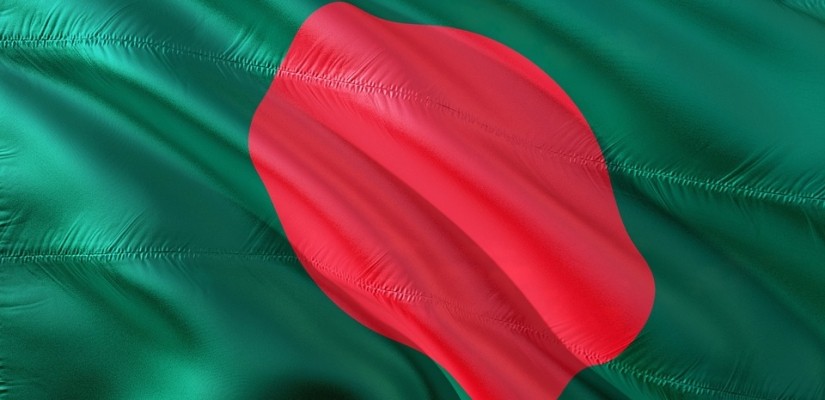Bangladesh’s economy is largely driven by its garment manufacturing industry, following China as the world’s second-largest apparel exporter. Since 2009, the country’s annual gross domestic product (GDP) has grown steadily, reaching a peak of 7.9% GDP growth in 2018, according to data by the World Bank. As Bangladesh’s economy gains momentum, the government under Prime Minister Sheikh Hasina seeks to expand and diversify the economy by additionally developing the country’s pharmaceuticals, aquaculture, and IT industry. Following the lead of regional powers India and Pakistan, Bangladesh’s government aims to strengthen its digital economy by sanctioning the “Digital Bangladesh” initiative. This initiative falls under the comprehensive “Vision 2021” strategy, which encompasses political, social, legal, and economic development plans and was adopted in 2008 by the Bangladesh Awami League, one of the country’s two leading parties, to transform Bangladesh into a middle-income country.
By increasing internet access and the use of technological devices such as computers or smart phones, Bangladesh may be able to grow its online labor market. With a median age of approximately 26 years, Bangladesh has a particularly young population. Directing the country’s young generation towards an IT-oriented career could aid Bangladesh in unfolding its digital potential and improving its market competitiveness. This would require government support to provide young generations with adequate training in technological professions.
According to research by the Oxford Internet Institute, Bangladesh followed India as the world’s second-largest provider of outsourced online labor. Outsourced technology skills include software development, online marketing, writing and translation, data entry, or multimedia services. The top three service categories offered by Bangladesh’s online workforce are sales and marketing support, software development and technology, and creative and multimedia. Recipients of such services are commonly businesses in the US, the UK, or Australia. Aiming to attract foreign investors and to outsource technology services, Bangladesh’s government plans to set up 28 Hi-Tech Parks, which are special economic zones and facilities tailored to the IT sector. Government authorities have attempted to further boost investment in the technology industry and Bangladesh’s Hi-Tech Parks with tax exemptions of up to 100%, creating an attractive business environment.

Increasing economic benefits through Bangladesh’s digital workforce, however, requires improved internet access and stability. While the number of internet users in Bangladesh has risen significantly in recent years, the International Telecommunication Union estimates that only 18.2% of Bangladesh’s population used the internet in 2017. The number of users would therefore amount to 30 million of Bangladesh’s total population of 165 million. In contrast, the governmental Bangladesh Telecommunication Regulatory Commission (BTRC) calculated that 80 million people in the country were internet subscribers in December 2017. The BTRC estimates that the number of internet subscribers has since risen to 94 million as of May 2019, accounting for roughly 57% of the population. While the exact number of internet users may remain unclear, Bangladesh would benefit from a further expansion of high-speed internet across the country in order to enhance the growth of its digital economy. Aware of the importance of internet connectivity and penetration, the BTRC has announced that it intends to lower broadband internet prices and provide quality internet services, taking steps towards achieving Bangladesh’s digital growth objective.
A stumbling block for Bangladesh’s digital advancement could be its internet freedom. Instances of internet restrictions in Bangladesh cut users’ access to the internet in August 2018 when BTRC authorities ordered internet providers to suspend 3G and 4G network services to stop civil protests against poor road safety. Another government-imposed shutdown of mobile internet services occurred during the national election in late December 2018, enforcing the political goal to limit the spread of rumors that could influence voter opinion. Overall, the independent organization Freedom House scored internet freedom in Bangladesh at 51 out of 100 points, marking it as a partly free country. While sporadic instances of internet restrictions may not influence Bangladesh’s digital economy, internet blockages should not become a frequently utilized tool of the government if the country seeks to attract foreign investors and continue competing with outsourcing powerhouses such as India, the US, Pakistan, or the Philippines.
